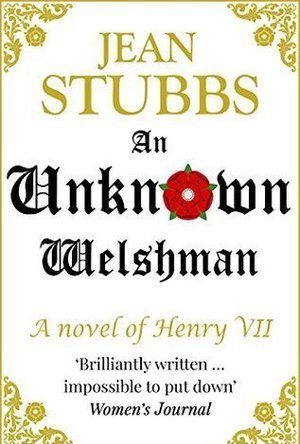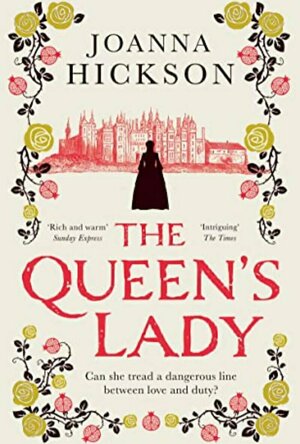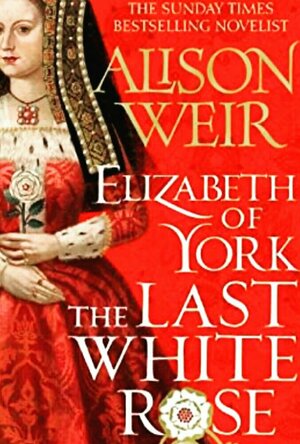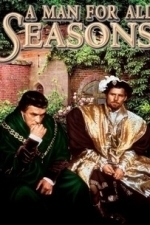Search
Search results
ClareR (6037 KP) rated An Unknown Welshman: A novel of Henry VII in Books
Jan 5, 2019
So good, that it couldn't possibly be history, surely?!
This is the story of how Henry VII came to be king, from his birth in Wales, to his crowning and marriage to Elizabeth of York.
I really liked the descriptions of life during the Wars of the Roses, how fickle the nobility seemed to be, swapping allegiances in order to keep their lands, possessions and lives. There was a good deal of action as well. Sieges, battles, hunts: mostly though, Henry had to wait around a lot, hoping that foreign dignitaries would keep him and feed and clothe him, not to mention the money that was sent over from the Crown in order to keep him away. Whilst eh was held captive in Wales, this was to the advantage of the man keeping him: he got to hold Henry's title and lands.
The Wars of the Roses can be very complicated and longwinded - there was a lot of to-ing and fro-ing between the sides. This is a good way to understand the Lancastrian (Henry's) side of the history. And it was fascinating to read.
Many thanks to Sapere Books for my copy to read and honestly review.
I really liked the descriptions of life during the Wars of the Roses, how fickle the nobility seemed to be, swapping allegiances in order to keep their lands, possessions and lives. There was a good deal of action as well. Sieges, battles, hunts: mostly though, Henry had to wait around a lot, hoping that foreign dignitaries would keep him and feed and clothe him, not to mention the money that was sent over from the Crown in order to keep him away. Whilst eh was held captive in Wales, this was to the advantage of the man keeping him: he got to hold Henry's title and lands.
The Wars of the Roses can be very complicated and longwinded - there was a lot of to-ing and fro-ing between the sides. This is a good way to understand the Lancastrian (Henry's) side of the history. And it was fascinating to read.
Many thanks to Sapere Books for my copy to read and honestly review.
ClareR (6037 KP) rated The Queens Lady in Books
Dec 8, 2022
The Queens Lady is the second in the Queens of the Tower series, and picks up the Joan Vaux story where it left off in the last book. She’s now Lady Joan Guildford, and is Lady in Waiting to Queen Elizabeth, the wife of Henry VII. It’s a privileged position and means that Joan is at Court when Prince Arthur dies and Prince Henry is named as heir. Joan acts as something of a go between with the King and Queen, but King Henry is a serious, dour man - and this isn’t improved when the Queen dies shortly after her son.
Joan no longer has a place at court, and her husband falls out of favour when his enemies gain considerable influence with the King.
It was really interesting to learn about the inner workings of the English court and the precarious line that courtiers had to tread. Joan also gave some insight into some significant historical events: the Field of the Cloth of Gold in France, Princess Margaret’s marriage to King James, the arrival of Catherine of Aragon, and accompanying Princess Mary to Paris when she marries King Louis.
I’m an absolute sucker for historical fiction, and I loved the details and the very human, realistic style this book was written in. And I really liked Joan.
The ravens are a constant - after all, Joan is the Lady of the Ravens. Bu they’re not as central to the storyline this time.
I don’t know whether this will just be a duology, or if there’s more to come, but I’ve thoroughly enjoyed this book.
Highly recommended.
Joan no longer has a place at court, and her husband falls out of favour when his enemies gain considerable influence with the King.
It was really interesting to learn about the inner workings of the English court and the precarious line that courtiers had to tread. Joan also gave some insight into some significant historical events: the Field of the Cloth of Gold in France, Princess Margaret’s marriage to King James, the arrival of Catherine of Aragon, and accompanying Princess Mary to Paris when she marries King Louis.
I’m an absolute sucker for historical fiction, and I loved the details and the very human, realistic style this book was written in. And I really liked Joan.
The ravens are a constant - after all, Joan is the Lady of the Ravens. Bu they’re not as central to the storyline this time.
I don’t know whether this will just be a duology, or if there’s more to come, but I’ve thoroughly enjoyed this book.
Highly recommended.
Lyndsey Gollogly (2893 KP) rated The Lady of the Ravens in Books
Oct 18, 2022
191 of 230
Book
The Lady of the Ravens ( Queens of the Tower book 1)
By Joanna Hickson
⭐️⭐️⭐️
Elizabeth of York, her life already tainted by dishonour and tragedy, now queen to the first Tudor king, Henry the VII.
Joan Vaux, servant of the court, straining against marriage and motherhood and privy to the deepest and darkest secrets of her queen. Like the ravens, Joan must use her eyes and her senses, as conspiracy whispers through the dark corridors of the Tower.
Through Joan’s eyes, The Lady of the Ravens inhabits the squalid streets of Tudor London, the imposing walls of its most fearsome fortress and the glamorous court of a kingdom in crisis.
It was good. I enjoyed it but got slightly bored towards the end. I’m a huge fan of the Tudors and liked reading this adaptation of the start of their reign. It was a decent read.
Book
The Lady of the Ravens ( Queens of the Tower book 1)
By Joanna Hickson
⭐️⭐️⭐️
Elizabeth of York, her life already tainted by dishonour and tragedy, now queen to the first Tudor king, Henry the VII.
Joan Vaux, servant of the court, straining against marriage and motherhood and privy to the deepest and darkest secrets of her queen. Like the ravens, Joan must use her eyes and her senses, as conspiracy whispers through the dark corridors of the Tower.
Through Joan’s eyes, The Lady of the Ravens inhabits the squalid streets of Tudor London, the imposing walls of its most fearsome fortress and the glamorous court of a kingdom in crisis.
It was good. I enjoyed it but got slightly bored towards the end. I’m a huge fan of the Tudors and liked reading this adaptation of the start of their reign. It was a decent read.
ClareR (6037 KP) rated Elizabeth of York: The Last White Rose in Books
Mar 14, 2023
I loved this rather melancholy story of the last Lancastrian princess - Elizabeth of York.
It’s 500 pages of history, with loads of details of what it was like to be a female royal during times of instability and unrest. Even for royalty it wasn’t a great time to be a woman. Only good for one thing: providing the next generation. But Elizabeth bucked that trend somewhat, and Weir makes the case for her having some influence with Henry VII. She was a literate, intelligent woman at a time where women weren’t always well educated. Her duty is always to her country and her family - and she had to play a dangerous game of keeping Richard happy whilst hoping that Henry would succeed. After all, she considers Richard responsible for the deaths of her brothers, one of whom was the true heir to the crown (but will we ever really know what happened to these boys?).
I really enjoyed this. I know from reviews I’ve read that some people believe it’s too long, but I can’t see how it could be made shorter and still make sense! There’s so much happening during Elizabeths lifetime: civil war, chopping and changing kings, backstabbing, family strife, births, deaths, marriages - the lot!
Three generations of royalty are covered wonderfully in this book, and I for one ate it up!
It’s 500 pages of history, with loads of details of what it was like to be a female royal during times of instability and unrest. Even for royalty it wasn’t a great time to be a woman. Only good for one thing: providing the next generation. But Elizabeth bucked that trend somewhat, and Weir makes the case for her having some influence with Henry VII. She was a literate, intelligent woman at a time where women weren’t always well educated. Her duty is always to her country and her family - and she had to play a dangerous game of keeping Richard happy whilst hoping that Henry would succeed. After all, she considers Richard responsible for the deaths of her brothers, one of whom was the true heir to the crown (but will we ever really know what happened to these boys?).
I really enjoyed this. I know from reviews I’ve read that some people believe it’s too long, but I can’t see how it could be made shorter and still make sense! There’s so much happening during Elizabeths lifetime: civil war, chopping and changing kings, backstabbing, family strife, births, deaths, marriages - the lot!
Three generations of royalty are covered wonderfully in this book, and I for one ate it up!




